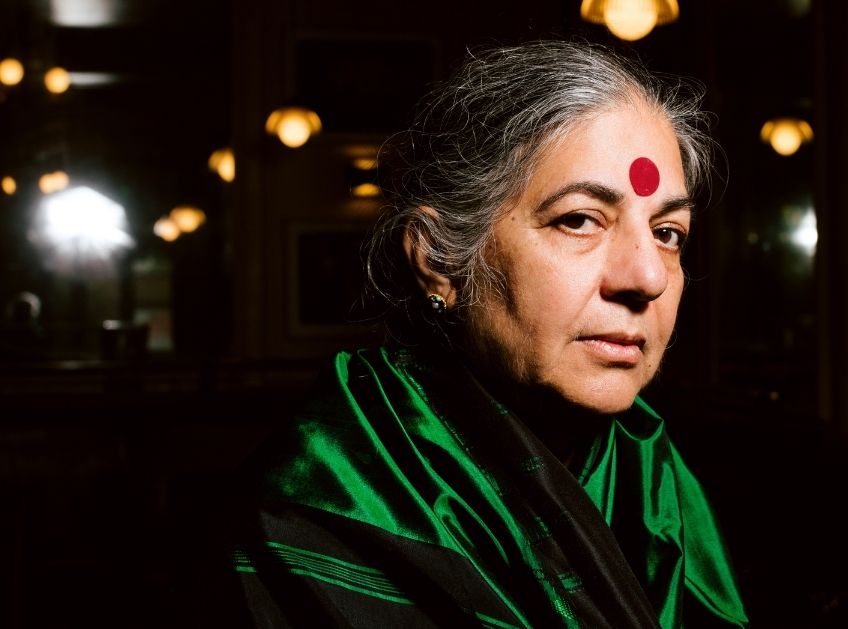FALL 2024
Environmental Legend Visits The Bluff
We are duty-bound to care for creation. Our future depends on it.

Photo credit: Marie Rouge/Getty Images
VANDANA SHIVA, PHD, started collecting seeds in India in 1991. As she tells it, she started the seed preservation project not with a full understanding of the scope of the work, but a desire to learn from the knowledge of the farmer, and women farmers in particular. This small grass-roots act—identifying and safeguarding the traditional, often indigenous crops and practices—has led to more than 150 seed banks across 20 states in India, policies that guard against biopiracy, and training in organic and biodiverse farming for more than two million farmers. Shiva’s voice has been powerful enough to stand up to corporations like Monsanto and entities like the World Trade Organization, and strong enough to be heard by Indian Parliament and the United Nations.
This quantum physicist and environmental change-maker, who Forbes recognized as “one of the seven most powerful women on the globe,” came to The Bluff to give University of Portland’s 2024 Zahm Lecture on Faith and Reason. The Buckley Center Auditorium was standing room only.
Shiva roundly rejects the claim that a seed is intellectual property, and therefore owned or monopolized, by a corporation. “When that’s done for the machine or a new chemical, molecule, fine,” she said. “But when the companies were trying to claim seeds as their invention…the seed is not an invention. The seed is a self-organized expression of creation. It is autopoietic. It makes itself.” She has started to measure the success of a farm not by yield but by the nutrition and the health of the soil. “By measuring biodiversity and nutrition [over yield], we have found that by protecting the earth and protecting bio-diversity, creating more small farms, we can have two times more food, healthy food, diverse food, than the world’s population.”
She argues that caring and protecting nature and the earth is not merely a duty to creation. “It is our duty to our future.” Valerie Banschbach, ecologist and dean of UP’s College of Arts and Sciences, has visited Shiva’s farm in India three times. “I was changed by it,” she said. “I saw firsthand and through the eyes of my students what is possible when a woman of great intellect leads from the heart, when grandmothers are respected for their wisdom as keepers of the seed, when cultural traditions and indigenous ways are celebrated and elevated.”